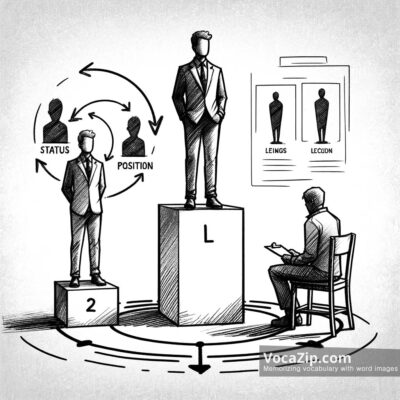status meaning
status :
position, condition
noun
▪ What is the status of the project?
▪ What is the condition of the project?
▪ She has a high status in the company.
▪ She has a high position in the company.
paraphrasing
▪ rank – position
▪ standing – condition
▪ prestige – high position
▪ situation – condition

Pronunciation
status [ˈsteɪtəs]
The stress is on 'sta' and sounds like 'stay-tus'.
Common phrases and grammar about status
status - Common meaning
noun
position, condition
Part of Speech Changes for "status"
▪ status quo (noun) – current state
▪ status symbol (noun) – a sign of high position
Common Expressions with "status"
▪ check the status – look at the condition
▪ update status – change the condition
▪ status report – a report on condition
▪ status symbol – sign of high position
Important examples of status in TOEIC
Vocabulary examples from the TOEIC test
In TOEIC vocabulary questions, status is often used to describe the condition of a project or task.
Example of a confusing word: statue (a sculpture)
Grammar examples from the TOEIC test
As a noun, status is often used in questions about the current state or position of something.
status
Idioms and fixed expressions in TOEIC
status update
'change in condition', used in reports or announcements.
status quo
means 'the current state of things', used when talking about keeping things the same.
Differences between similar words and status
status
,
rank
differences
Status refers to the overall condition or position, while rank often refers to a specific level in a hierarchy.
status
,
condition
differences
Status is often used to describe a social or professional position, while condition is used to describe a physical or health state.
Words with the same origin as status
The origin of status
The word status comes from the Latin 'status', meaning 'state or condition'.
Word structure
The word status is derived from the Latin root 'stat', meaning 'to stand'.
Words with the same origin
The root of status is stat (to stand). Words with the same root include statute (a law), stationary (not moving), and statue (a carved figure).
Please select an image in the quiz
Previous post and next post


accountable
178
responsible, answerable
adjective ┃
Views 5


dependable
179
reliable, trustworthy
adjective ┃
Views 4





